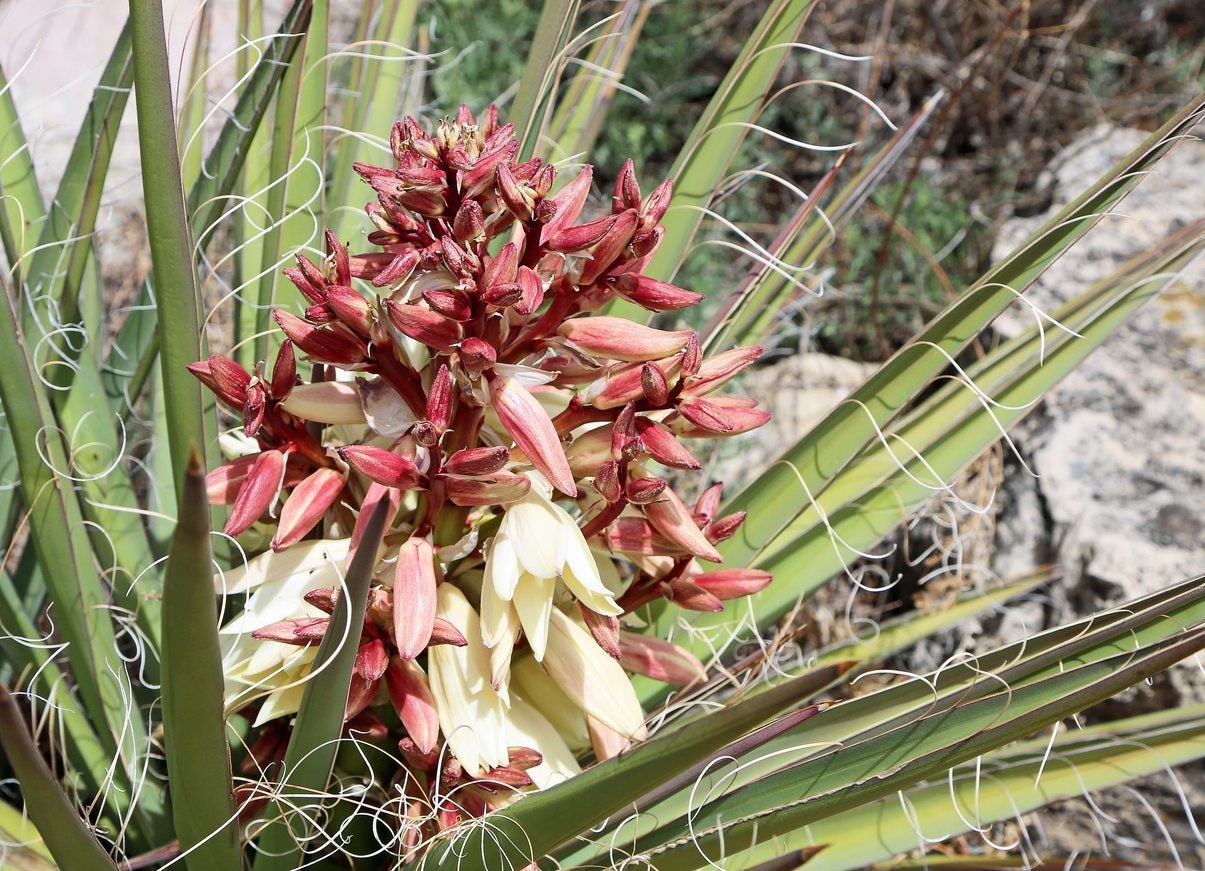What Is Banana Yucca: Tips For Banana Yucca Care


What is banana yucca? Also known as Datil yucca, soapweed, or blue yucca, banana yucca (Yucca baccata) is a type of yucca native to the Southwest United States and northern Mexico. Banana yucca is named for the fleshy, sweet-tasting, green to dark purple seedpods, which are about the size and shape of a banana. Interested in growing banana yucca in your garden? Read on to learn how to grow banana yucca.
Yucca Baccata Information
Like all types of yucca, banana yucca consists of mounded clumps of stiff, sword-shaped leaves. Tall, attractive spikes of creamy flowers appear in spring, although usually not every year. Plant experts think the plant sometimes needs to recuperate and rebuild a healthy store of carbohydrates before resuming blooming. In its natural environment, banana yucca often grows alongside sagebrush, pinyon juniper, or ponderosa pine. Although banana yucca is a desert plant, it is hardy and tolerates cold to -20 degrees F. (-29 C.). Be careful about growing banana yucca if you have young children. This is definitely not a people-friendly plant, as the leaf blades are sharp enough to slice through skin.
How to Grow Banana Yucca
Growing banana yucca couldn’t be much easier. Purchase a small plant from a nursery or garden center, or divide an offset from an established plant. You can also take cuttings; yucca leaves root easily. If you’re adventurous, you can plant yucca seeds indoors, but plant several seeds because germination, which generally takes about three to four weeks, is chancy. Plant your banana yucca in full sun or partial shade. Yucca prefers dry, poor, sandy soil, but will adapt to nearly any well-drained soil. However, this desert plant won’t tolerate soggy conditions.
Banana Yucca Care
Although banana yucca is very drought tolerant, it is more vigorous with regular irrigation. One watering per week during warm weather is usually plenty, so be careful not to overwater. Cut back on watering if the leaf tips turn brown. Remove old flower stalks before new growth emerges in early spring. Be sure to wear gloves and a long-sleeved shirt to protect your skin from the spiky stalks and razor-sharp leaf blades. Fertilize banana yucca every spring using any balanced, slow-released fertilizer. Watch for spider mites, which are common in dry, dusty environments. Spider mites are usually easy to manage with insecticidal soap spray.
Sign up for the Gardening Know How newsletter today and receive a free copy of our e-book "How to Grow Delicious Tomatoes".

A Credentialed Garden Writer, Mary H. Dyer was with Gardening Know How in the very beginning, publishing articles as early as 2007.